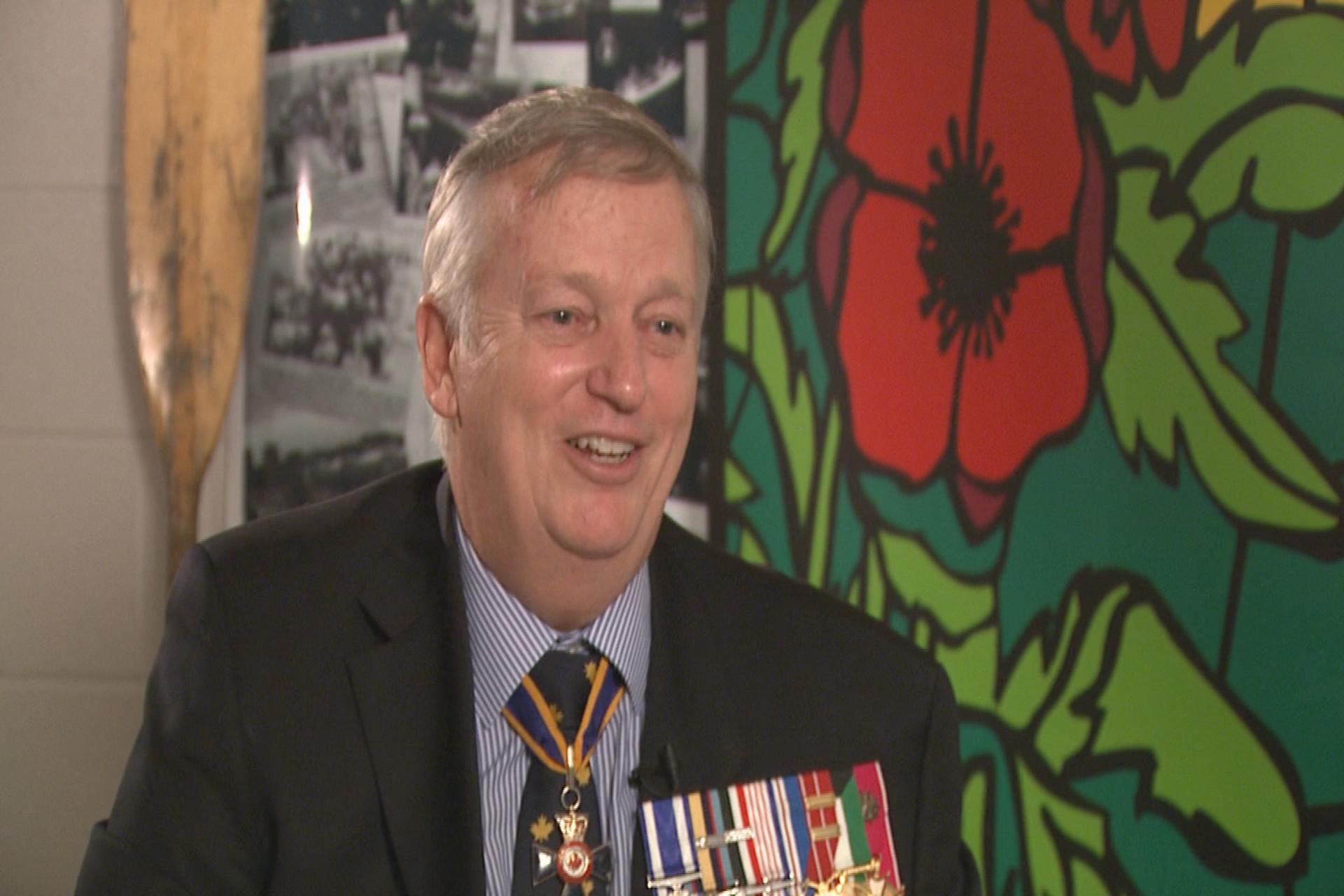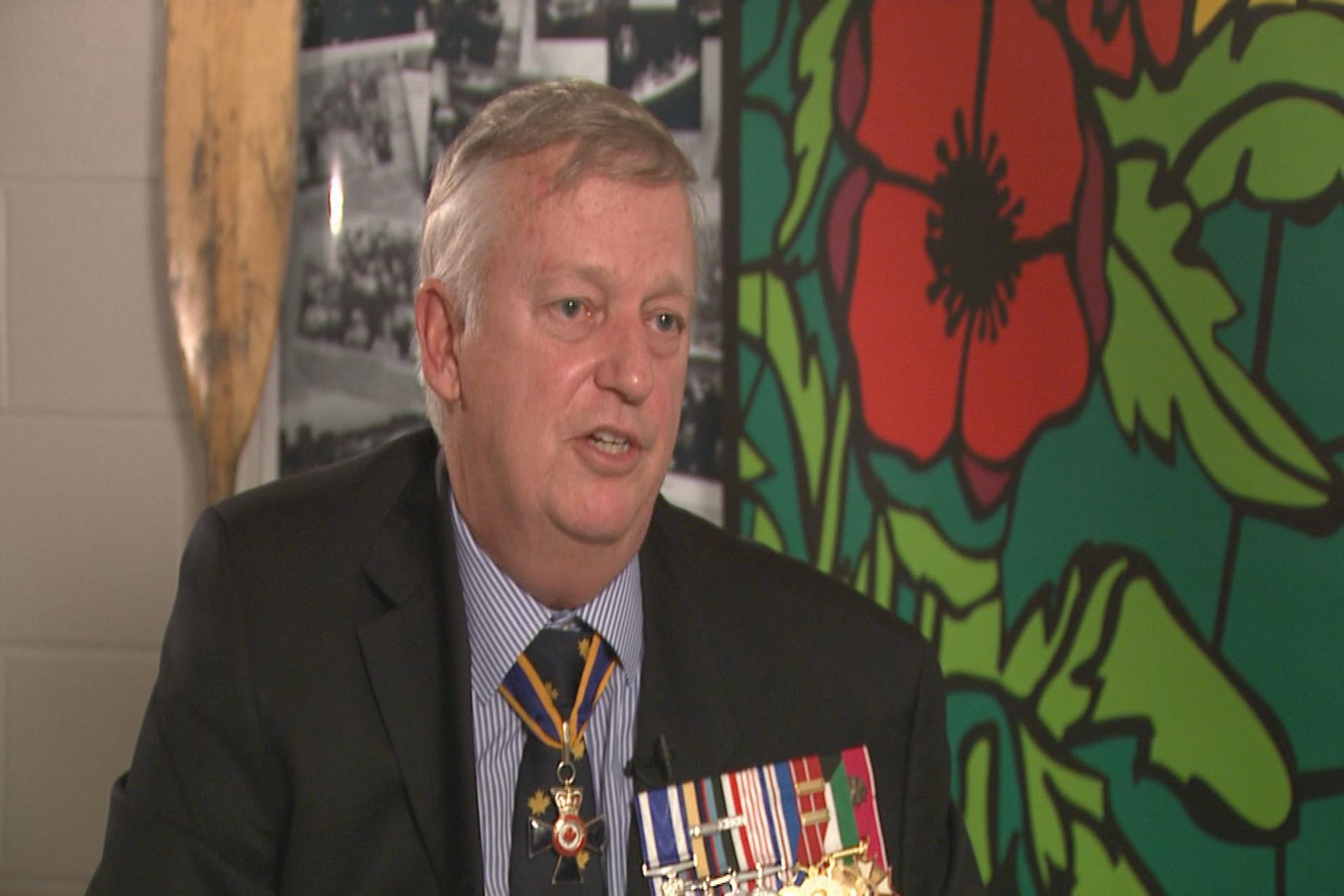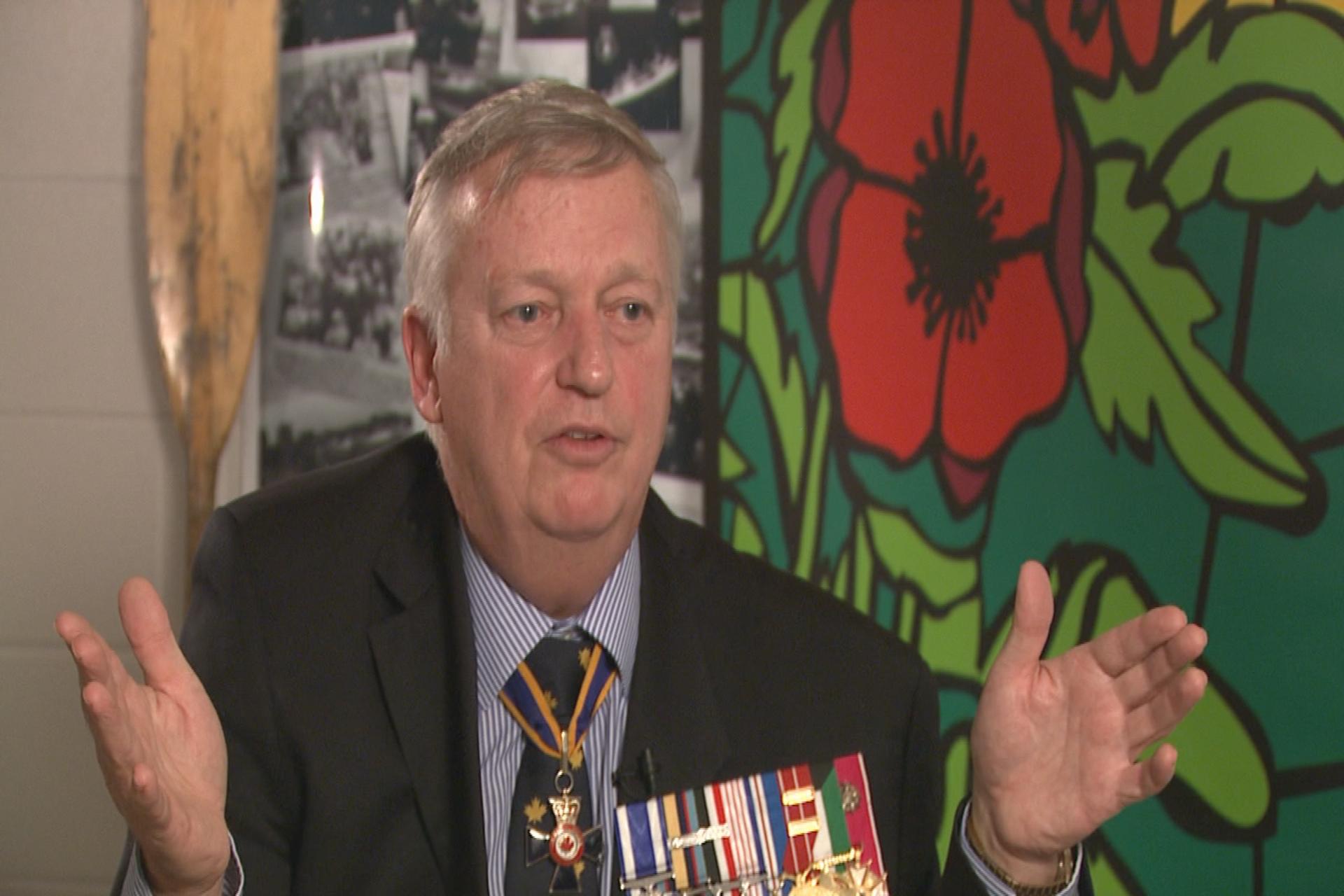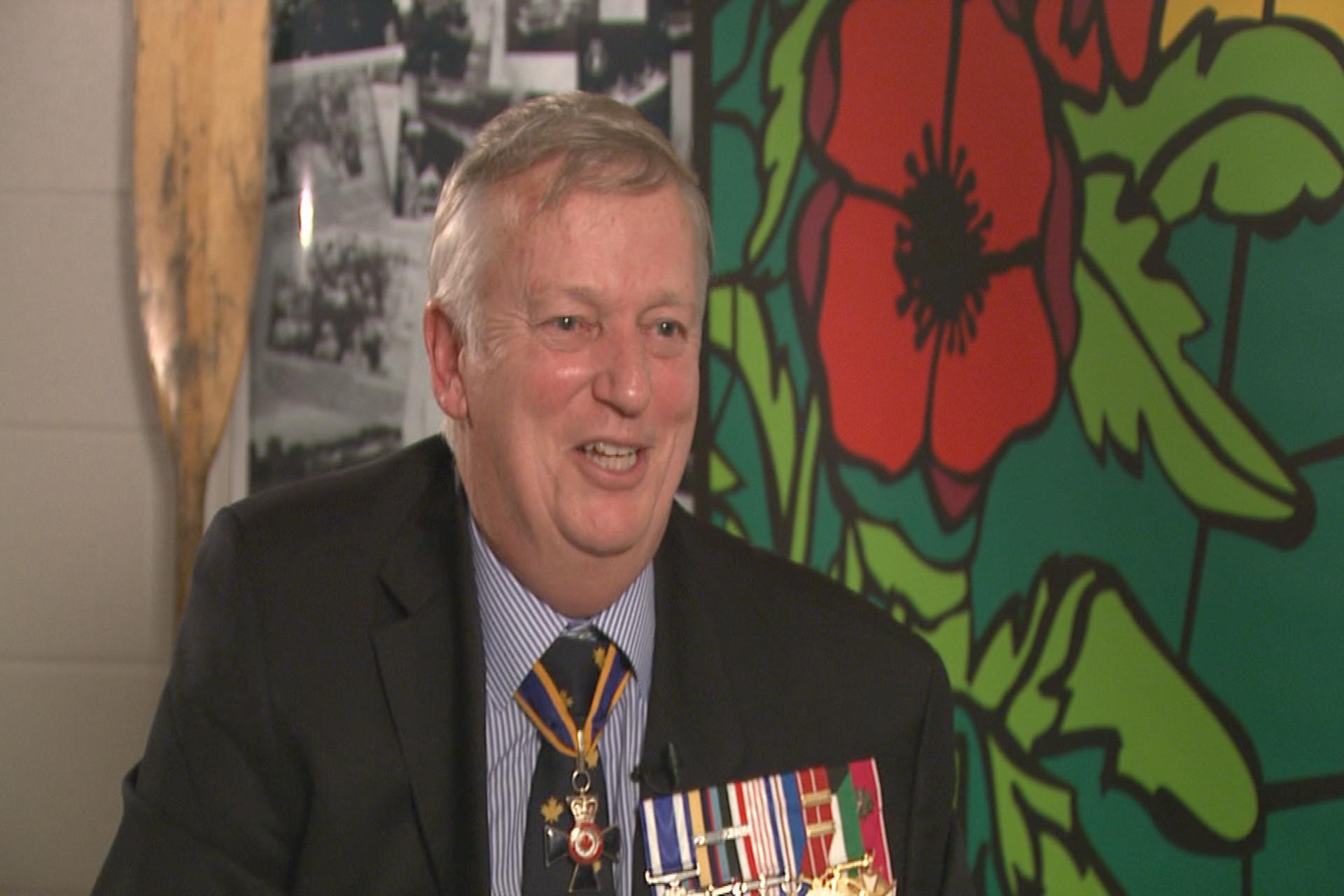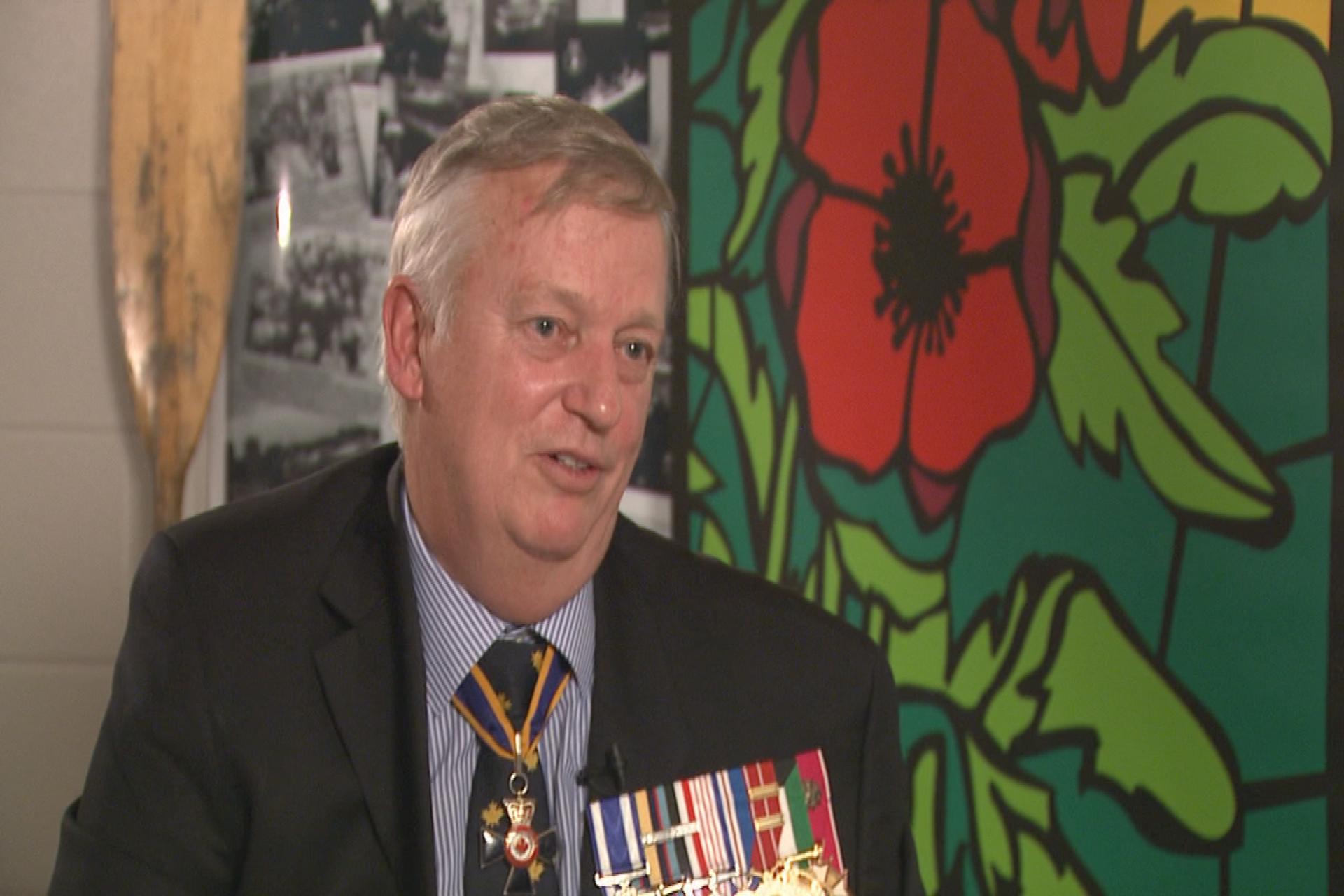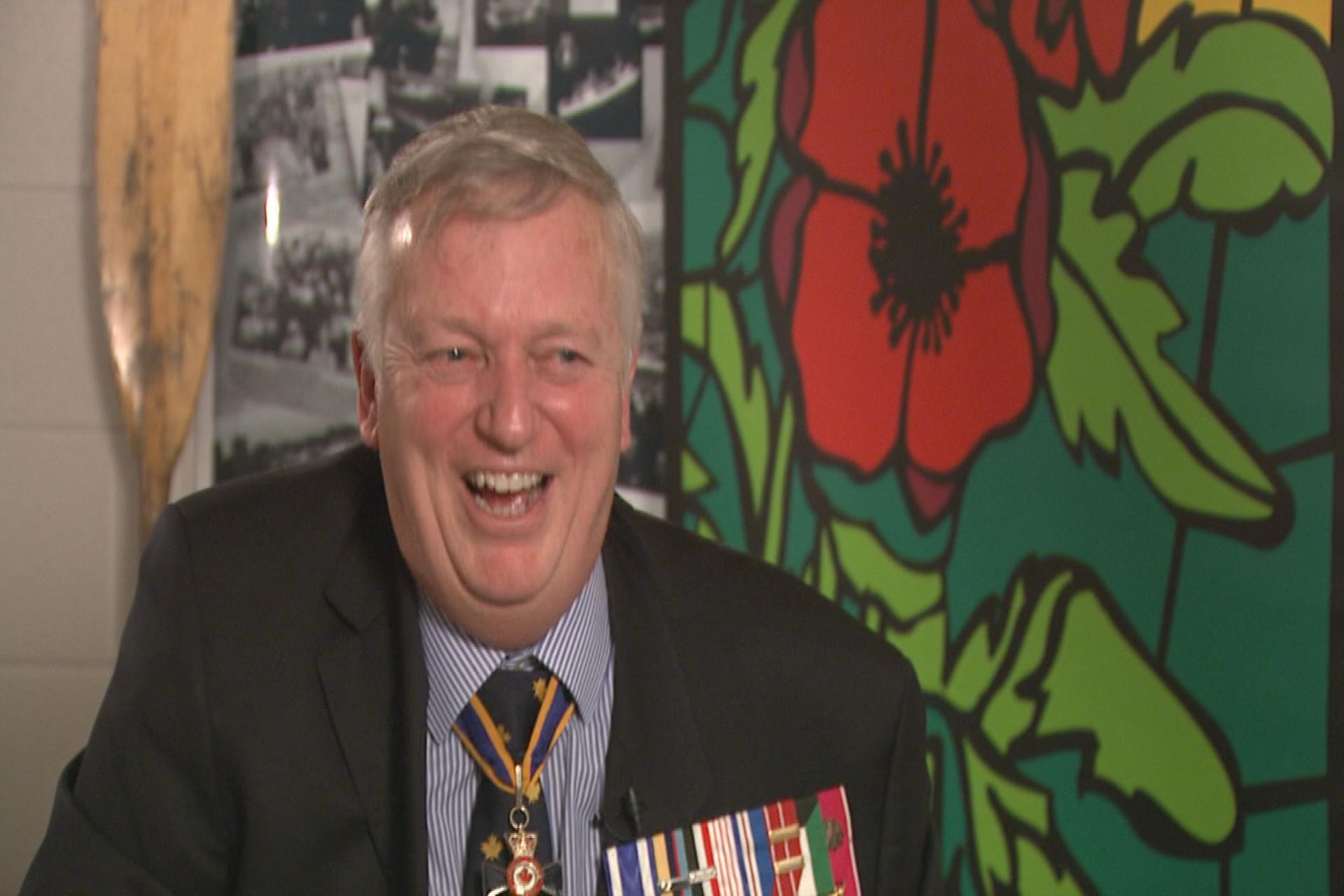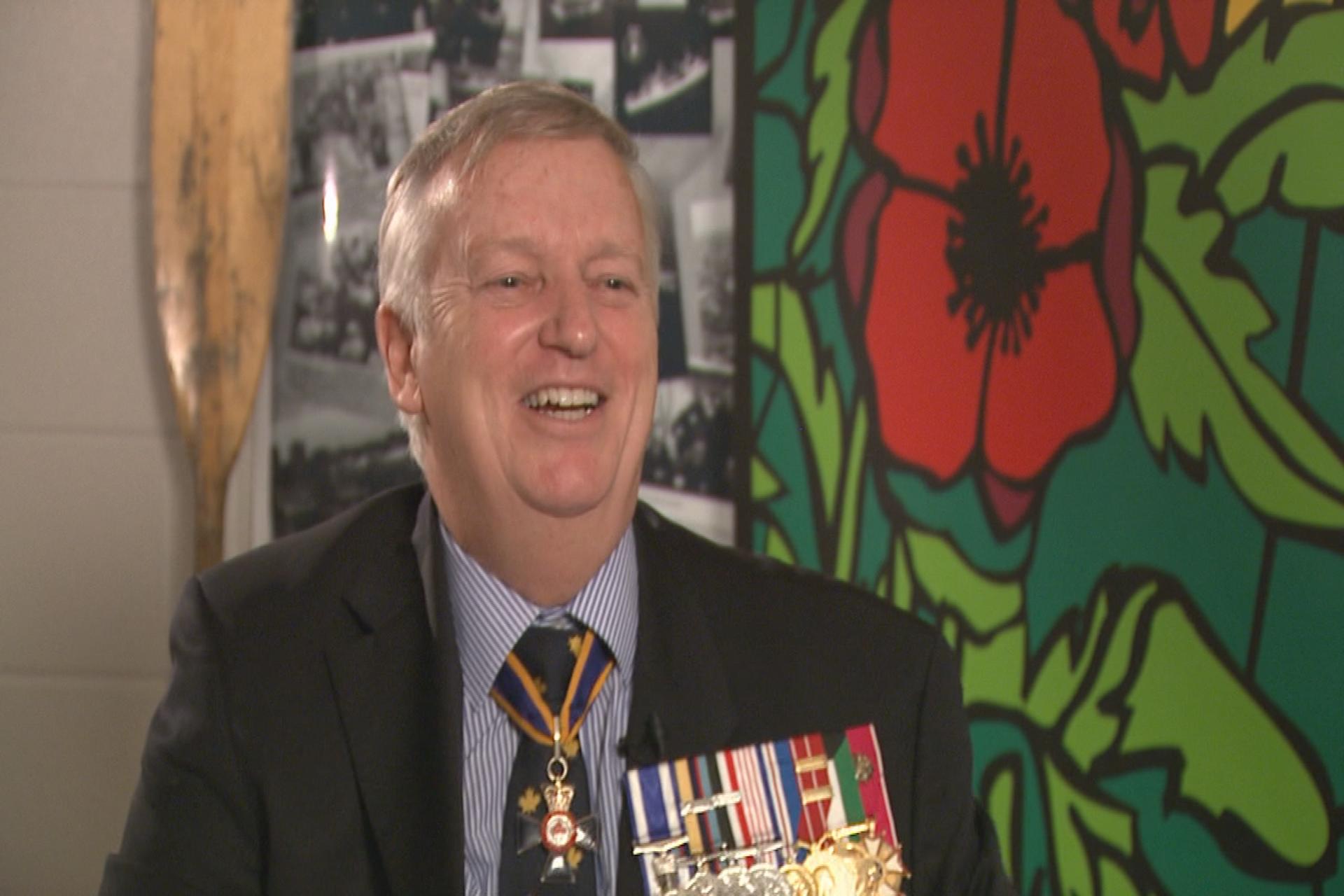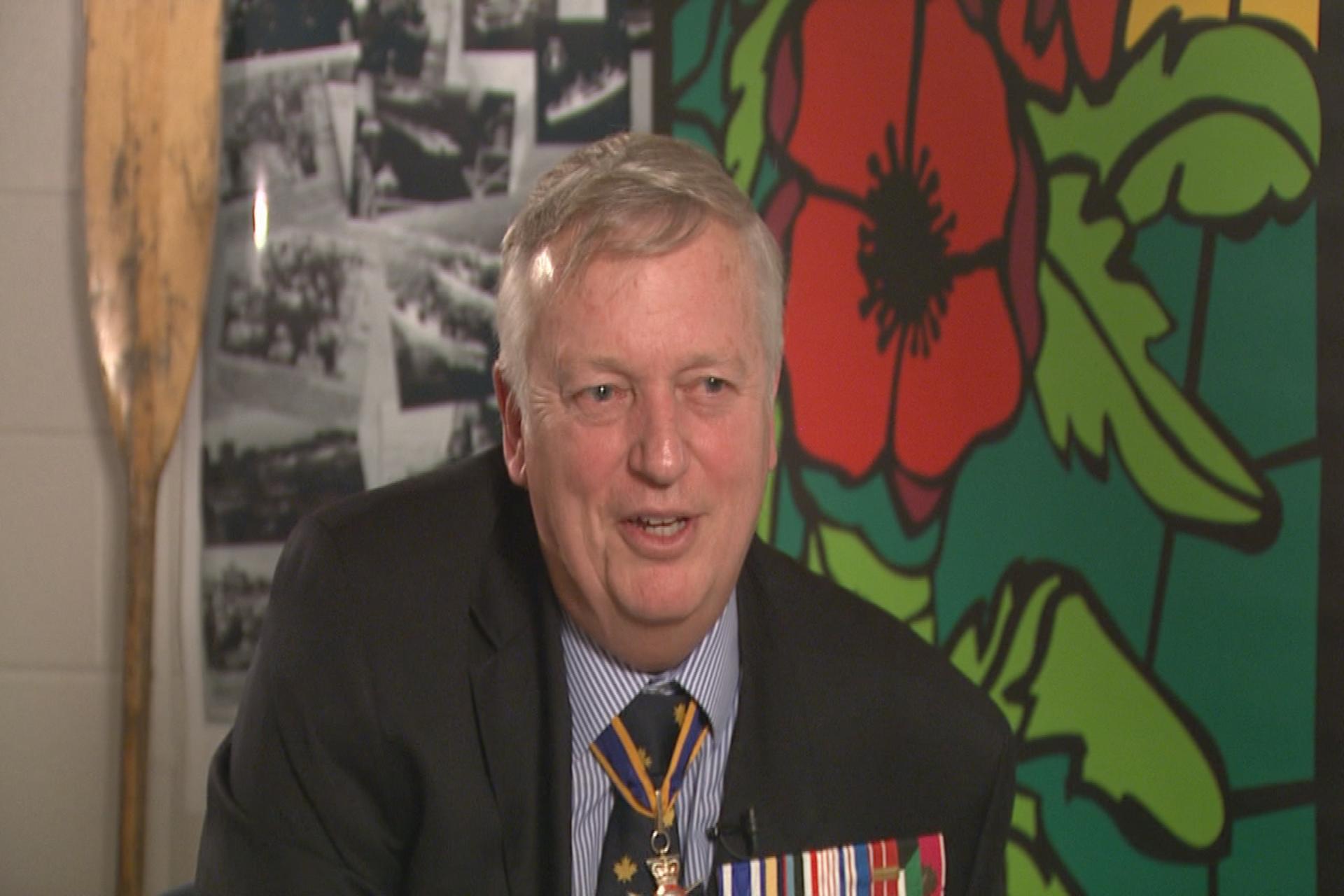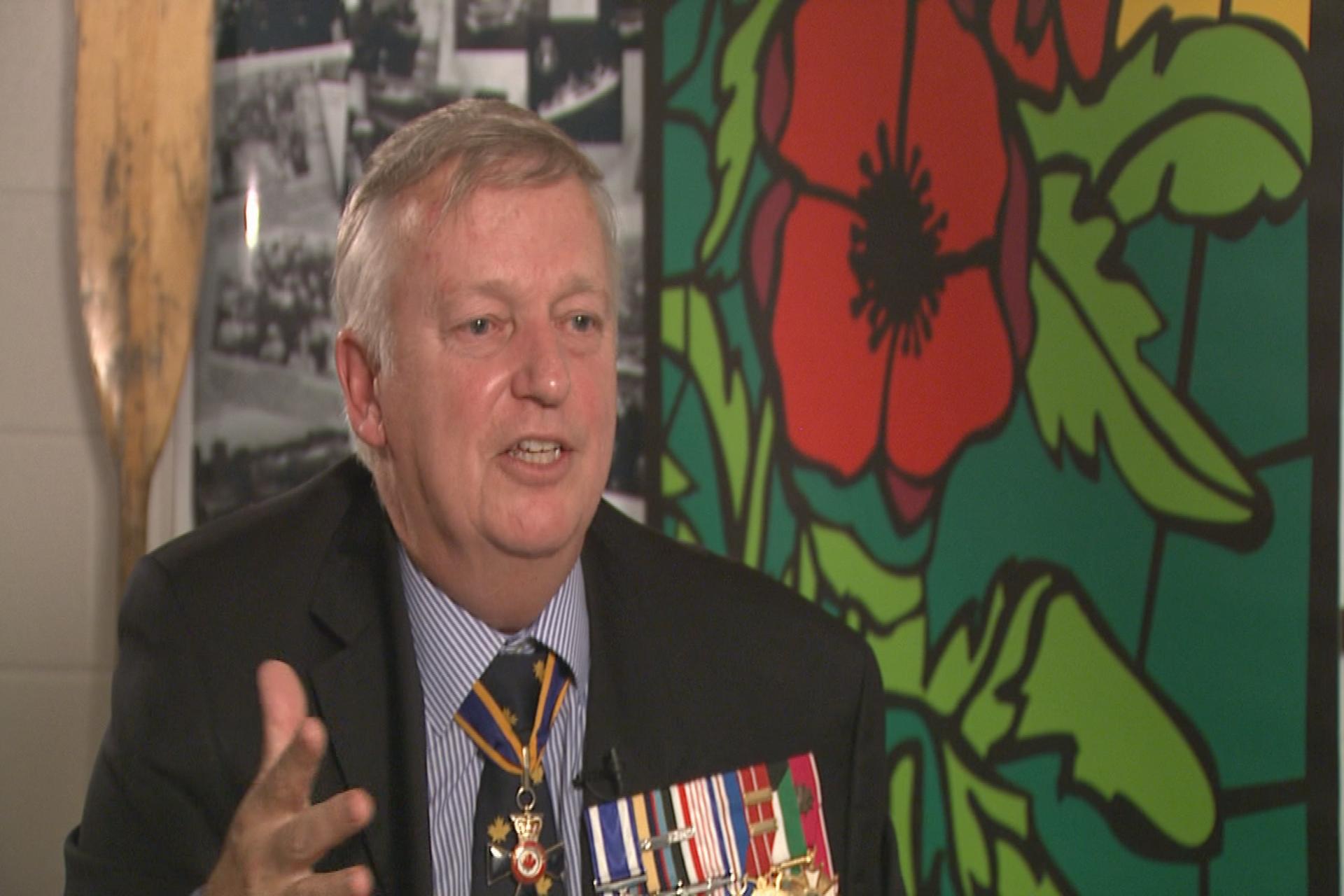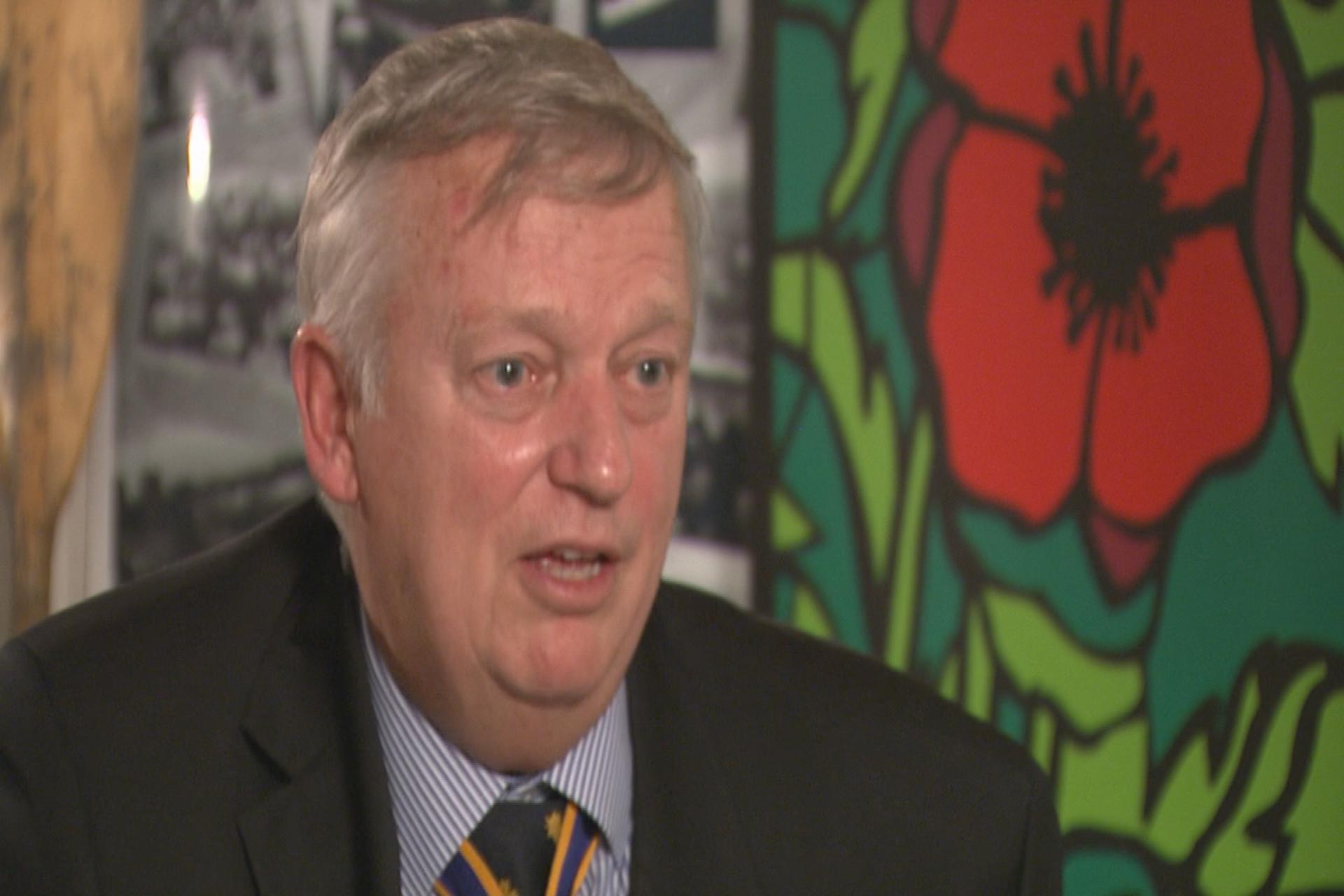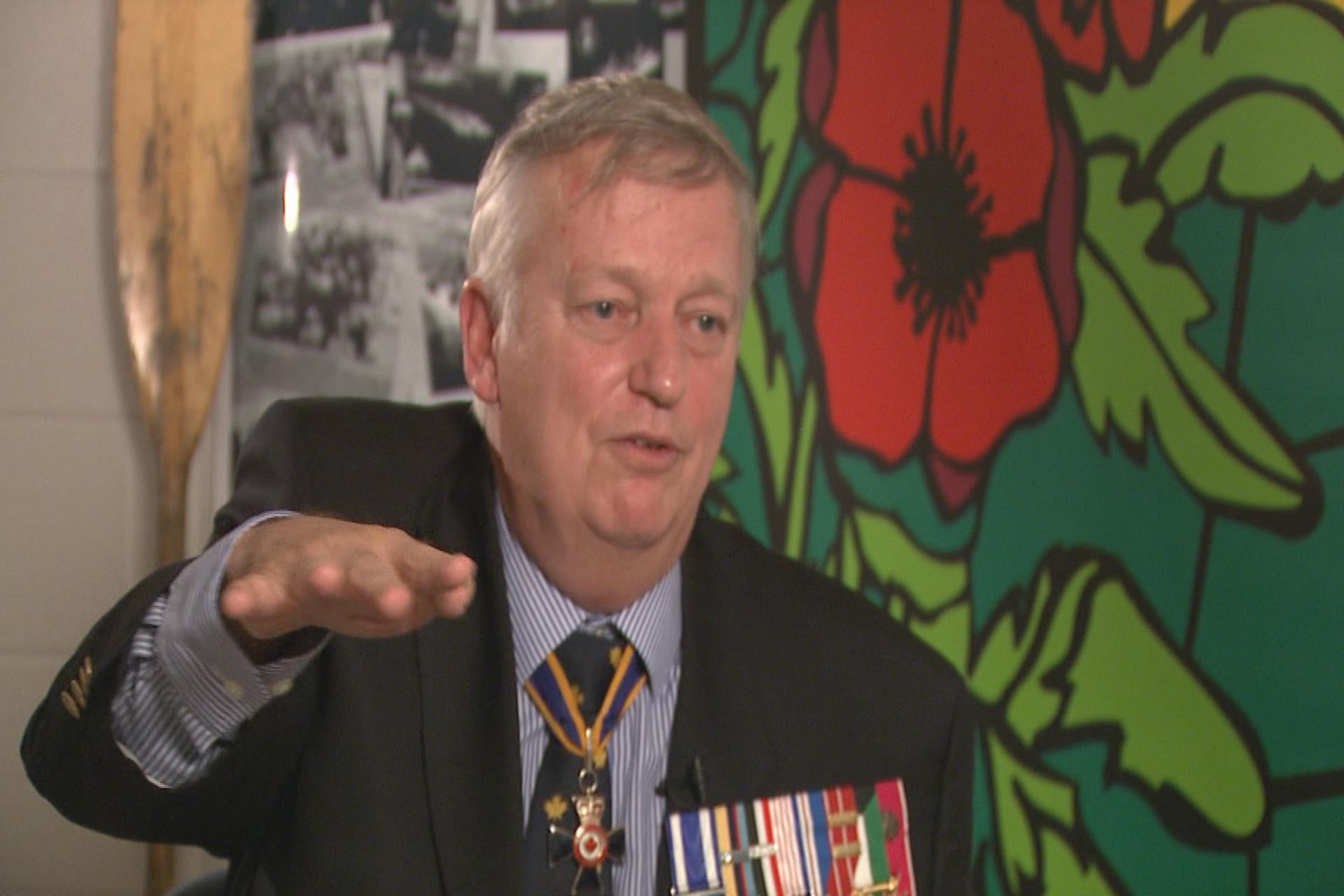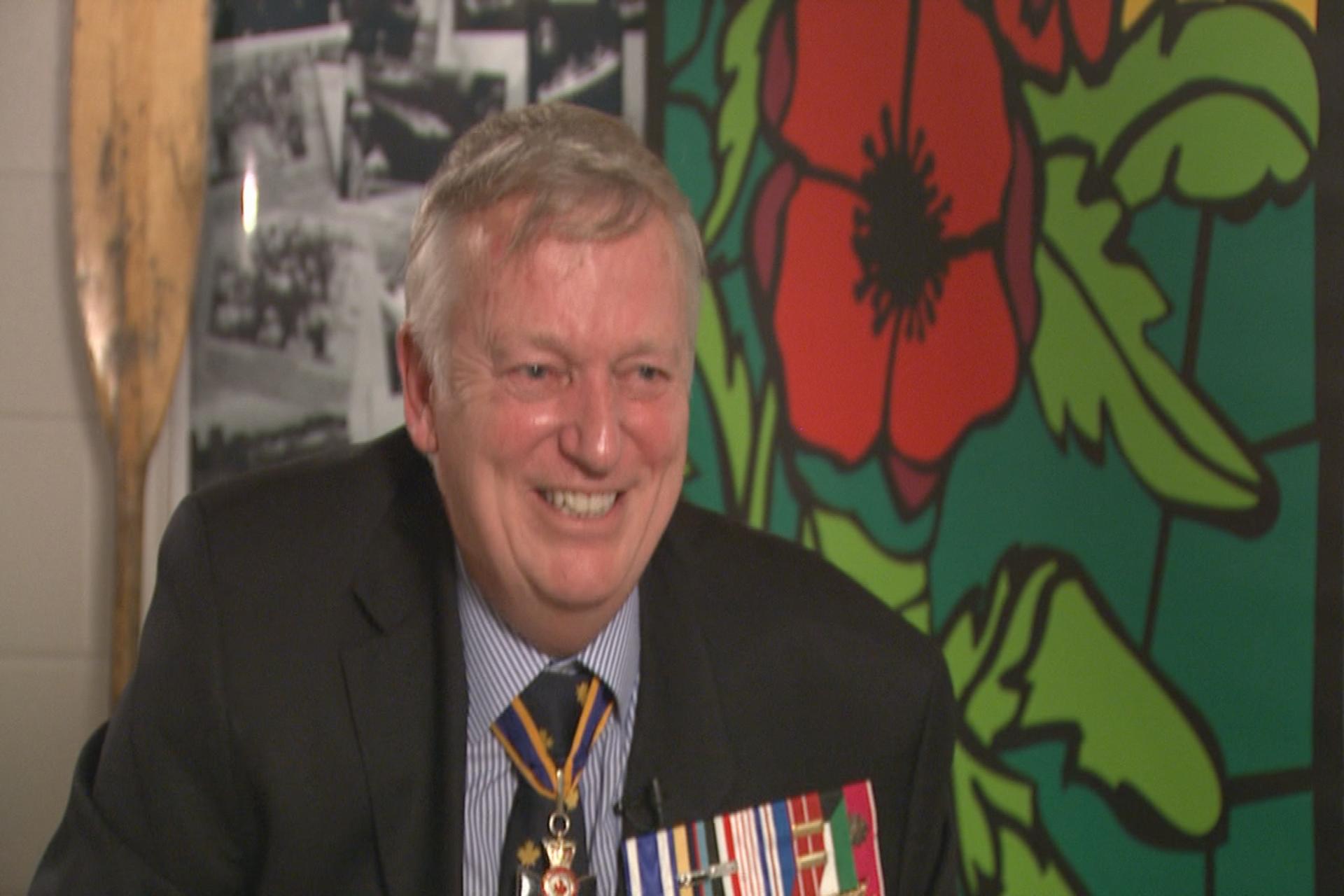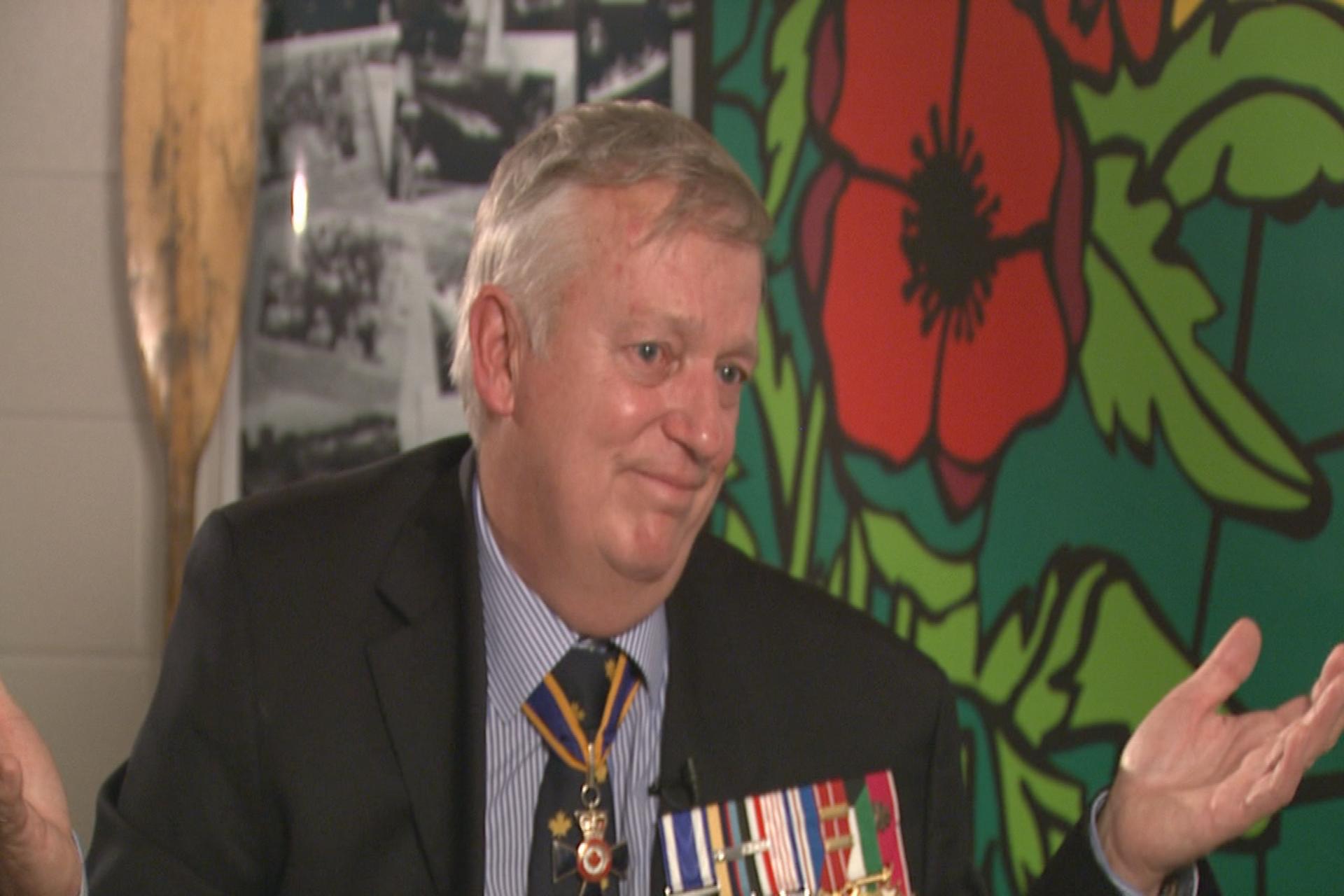Task Commander’s Responsibility
Heroes Remember
Task Commander’s Responsibility
Transcript
As their overall commander it was my job and
my staff’s job to tell ships where
to go and what to do.
It was the individual captain of the ship
to do it, to go there and be there and
do what they were told to do.
If they had to escort a ship through
the Persian Gulf because we needed an
escort to take a big container ship through
to land the amphibious forces equipment
off of Saudi Arabia that’s what they would
do and that’s what the task group staff
organized; told what each ship,
where to go and for how long and
what to do and arranged when to get it
re-fuelled and put a schedule out.
We had, because we didn’t have
computer systems of today,
we had lots of state boards all over the
operation centre in the operation’s room
in Athabaskan that would say here are
all the merchant ships,
here’s what they’re carrying,
here’s where they are going,
here’s who is going to have to escort
them from this point to this point,
here are the escorts and then the
on watch people on my staff and the
ship would actually monitor to make
sure all of that was happening.
And then we had to know what air traffic
was going to happen in the four
United States aircraft carriers their air
tasking order that they put out on a
rolling basis was about that thick;
the size of a huge book and that was
just, you know, one or two days’ worth
of when airplanes were going to be flying.
And if any airplane was not flying in
the right place at the right time,
they were under a weapon system that
would be looking at them,
that could fire any second.
And that was, I think, one of the scary
parts I think for all of us was that a
weapon system would go off and
hit the wrong target and we had lots of
opportunities for that to happen because
some of the aircraft,
the Saudi Arabia Air Force had were
the same aircraft as the Iraqis had,
you had to really look at what the markings
were on the tail before you actually,
you may be watching them,
but you didn’t want to shoot at them
if they were part of your group,
not part of the other group so all of
these things had to be taken into account
of how the whole thing was organized.
Description
Vice Admiral Miller shares the responsibilities he played on board the ship and the types of duties the task force organized.
Duncan “Dusty” Miller
Born in the United Kingdom, Duncan “Dusty” Miller immigrated to Canada in 1954. At the age of 15 and having a strong desire to join the military, Mr. Miller went to the recruiting centre but could not be accepted until 16 years of age. He then attended Bishop’s University in Lennoxville. During his career, Mr. Miller rose to the rank of Vice Admiral where he became the Naval Task Commander aboard HMCS Athabaskan during the Persian Gulf War. Vice Admiral Miller later retired from the military and now resides in Halifax, Nova Scotia.
Meta Data
- Medium:
- Video
- Owner:
- Veterans Affairs Canada
- Recorded:
- February 26, 2016
- Duration:
- 2:37
- Person Interviewed:
- Duncan “Dusty” Miller
- War, Conflict or Mission:
- Canadian Armed Forces
- Location/Theatre:
- Persian Gulf
- Battle/Campaign:
- Gulf War
- Units/Ship:
- HMCS Athabascan
Related Videos
- Date modified:



